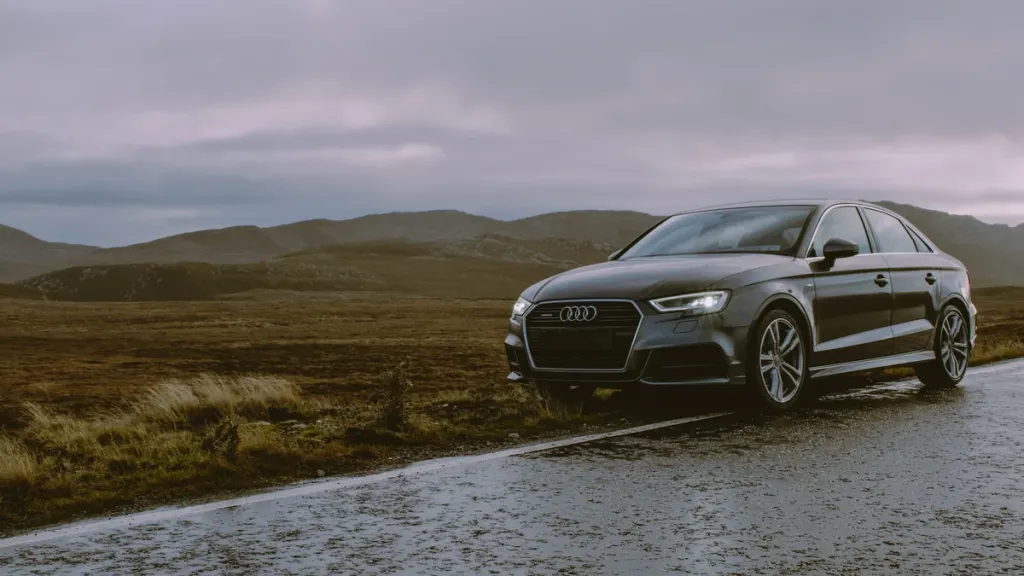What is Vehicle Insurance? How does it work?

Vehicle insurance is insurance that protects you and your vehicle in the event of an accident and covers you for both property damage and injuries to people. In this article, we will explore what vehicle insurance is, how it works, and some of the benefits it offers. So read on to learn more about this essential safety net!
What is a Vehicle Insurance?
A vehicle insurance policy is a contract between an insurance company and a driver or owner of a motor vehicle. The policy covers the vehicle in the event that it is damaged or stolen while being driven or owned by the policyholder.
The policy may also cover the driver and passengers in the vehicle. It may also cover their property if it is damaged while in the care of the driver or passengers. Coverage may also be provided for parking, loss of use, medical expenses, and other associated costs.
Vehicle insurance policies usually have different rates for different types of vehicles, and coverage periods can vary from month to month or year to year. A policy typically has a minimum required amount of coverage, which must be met before a claim can be made. There are also often restrictions on how much money a policyholder can spend without having to pay additional premiums.
Motorists should carefully compare rates before purchasing a policy, and should read the terms and conditions of each policy.
How does it work?
Vehicle insurance is a type of insurance that helps protect you and your automobile in the event of an accident. The policy typically covers the cost of damages to your car, including repairs and replacement cost. In some cases, your policy may also cover medical expenses, lost wages, and even funeral costs.
To be eligible for such an insurance, you must have a valid driver’s license and be registered in the state where you live. You must also maintain liability insurance coverage, which protects you financially if someone is injured or killed while driving your car.
You can purchase vehicle insurance through a broker or direct from an insurer. Rates vary widely based on your driving history, location, and type of vehicle. The best way to find the right policy is to talk to several providers and compare rates.
What are the benefits of Vehicle Insurance?
Vehicle insurance is a type of coverage that protects you and your automobile in the event of loss or damage. The benefits include:
-Protection from financial injury in the event of a collision or theft
-Liability protection if you are involved in an accident
-Repairs or replacement costs if your vehicle is damaged in an accident
-Deductible coverage for damages you may suffer in an accident
What are the types of Vehicle Insurance?
Vehicle insurance provides financial protection for you and your car in the event of an accident. There are three types: personal liability, property damage, and comprehensive.
Personal liability insurance covers you and the people you’re driving with if someone is injured as a result of an accident. This type of insurance pays for medical expenses and lost income.
Property damage insurance pays for damages to your car whether or not anyone is injured. This type of insurance covers things like replacing damaged parts, fixing broken windows, and more.
Comprehensive coverage includes both personal liability and property damage insurance in one policy. This type of policy helps to protect you from both financial losses and physical injury in the event of an accident.
There are many different types of insurance for vehicles to choose from. Thus, one needs to be sure to speak with a qualified agent about what’s best for them and their car.

What are the top Vehicle Insurances in India?
In India, there are a few types of insurance for vehicles available which include third-party, personal, and property. Each has its own benefits and drawbacks.
Third-party vehicle insurance protects the owner of the automobile from claims made by others. For example, in the event that someone is injured in an accident involving the owner’s car. This type of insurance typically costs more than personal or property insurance, but it is usually more comprehensive.
Personal vehicle insurance covers you and your passengers only if you are at fault in an accident. This type of policy is cheaper than third-party or property insurance. Although, it does not cover injuries to other drivers or their passengers.
Property damage coverage pays for damages to other people or their property caused by an accident involving your car. This type of policy is typically more expensive than personal or third-party policies. However, it can be helpful if you are concerned about losing your car in an accident.
What are Pay As You Drive Insurances?
The Pay As You Drive (PAYD) or Pay As You Go approach has received considerable attention outside of India.
One kind of automobile insurance model is Pay As You Drive. It enables some customization of insurance policies by the policyholders, which helps to lower the premium. Such laws are already common in affluent countries all over the world, and they are gaining traction in India.
First-party Insurance
Vehicle insurance is crucial in India. It is a legal necessity, and breaking the law has consequences. As a result, you must make sure that your car insurance policy at the very least covers third parties. Such an insurance covers property damage and injury to third parties brought on by the covered vehicle.
Full Coverage Insurance
Your alternative two is a Comprehensive Plan. It is a comprehensive auto insurance plan. Additionally, it contains the legal protection. The fact that the policy provides Own Damage coverage is a benefit. This gives protection against monetary losses in the event that the covered car is damaged. These damages may be the result of accidents, fire, vandalism, etc. The policy also includes coverage for theft.
The required Third-party Liability Car Insurance Policy is provided by a Pay As You Drive auto insurance policy for the duration of the policy. It also provides Comprehensive Coverage, but the amount is determined by how far the car travels.
You consequently pay the surcharge based on the distance you drive. However, the distance will not have an impact on the necessary policy’s price. So, if you drive less, your overall auto insurance costs are lower.




